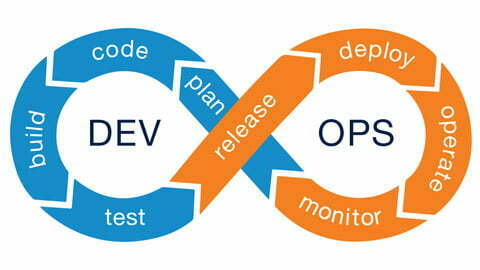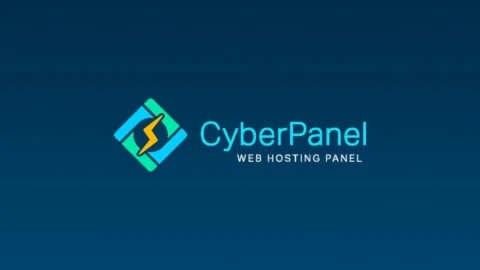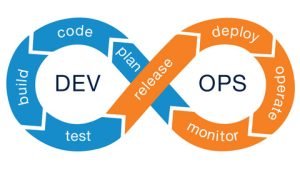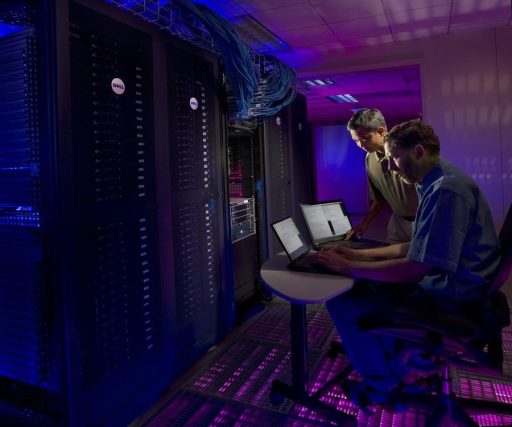DevOps is a set of practices and tools that aim to bring development and operations teams together in order to improve the speed and reliability of software delivery. The goal of DevOps is to automate and optimize the entire software delivery pipeline, from code development to deployment and ongoing operations.
One of the key principles of DevOps is continuous integration and continuous delivery (CI/CD). This involves automatically building, testing, and deploying code changes as soon as they are committed, in order to quickly identify and fix any issues. This is typically done using a tool such as Jenkins, Travis CI, or GitLab CI, which automates the process of building, testing, and deploying code.
Another important principle of DevOps is infrastructure as code (IaC). This approach allows for the management and provisioning of infrastructure, such as servers and network configurations, to be done through code, rather than manual configuration. This is typically done using tools like Terraform, Ansible, or Puppet. IaC allows for more efficient and consistent management of infrastructure, and also facilitates the use of automated tools for testing, deployment, and scaling.
Monitoring and logging are also crucial components of a successful DevOps strategy. By collecting and analyzing data on system performance, usage patterns, and error rates, teams can proactively identify and resolve issues before they impact customers. Popular open-source solutions such as Elastic Stack, Grafana, and Prometheus are widely used to gather, store, and visualize metrics and log data.
One of the most important aspects of DevOps is collaboration and communication. It brings together development, operations and other teams to work in a more agile way, breaking down silos and enabling cross-functional teams. This is supported by a culture of experimentation, learning, and continuous improvement, as well as by practices such as blameless post-mortems and pair programming.
Finally, DevOps requires a robust security strategy, that is integrated throughout the entire software delivery pipeline. Security must be considered at every step, from development, to testing, and deployment, in order to prevent vulnerabilities, protect against threats and ensure compliance with regulations and industry standards. The use of automated security testing and continuous security monitoring, can help to ensure that systems are secured from threats.
DevOps practices and tools are constantly evolving and vary depending on the specific needs and goals of the organization. But in general, DevOps is about automating and streamlining the software delivery process, improving collaboration and communication, increasing efficiency and increasing the speed of the delivery of valuable software.
Overall, DevOps is a continuous way of working, that is designed to help organizations deliver software faster and more reliably. This can be achieved by implementing best practices and tools, such as continuous integration and delivery, infrastructure as code, monitoring and logging, collaboration, and security.
Frequently Asked Questions
What is the main goal of DevOps?
The main goal of DevOps is to improve the speed and reliability of software delivery by automating and optimizing the entire software delivery pipeline, from code development to deployment and ongoing operations.
How does DevOps improve collaboration between development and operations teams?
DevOps improves collaboration by breaking down silos and enabling cross-functional teams. This is supported by a culture of experimentation, learning, and continuous improvement, as well as by practices such as blameless post-mortems and pair programming.
How does DevOps help to improve security?
DevOps helps to improve security by considering security at every step of the software delivery pipeline, from development, to testing, and deployment. By automating security testing and continuous security monitoring, it can help ensure that systems are secured from threats and vulnerabilities.
What are some of the most popular DevOps tools?
Some of the most popular DevOps tools include Jenkins, Travis CI, GitLab CI for Continuous integration and delivery, Terraform, Ansible, Puppet for infrastructure as code, Elastic Stack, Grafana, Prometheus for monitoring and logging, and Git for version control.
How can DevOps be implemented in a company?
DevOps can be implemented in a company by introducing best practices and tools, such as continuous integration and delivery, infrastructure as code, monitoring and logging, collaboration, and security. This can be achieved by building cross-functional teams, implementing automation, and fostering a culture of experimentation, learning, and continuous improvement.
How does DevOps differ from Agile?
While Agile focuses on delivering high-quality software in small, incremental releases, DevOps focuses on automating and optimizing the entire softwaotomatik-taslakre delivery pipeline, from code development to deployment and ongoing operations. Agile is mainly focused on development and testing stages where DevOps covers whole software delivery process from development to production
How does DevOps relate to cloud computing?
DevOps and cloud computing are closely related, as cloud platforms provide the infrastructure and services needed to implement DevOps practices such as continuous integration and delivery, infrastructure as code, and automatic scaling. Cloud computing also enables teams to take advantage of advanced monitoring and logging tools and to deploy and manage applications in a more flexible and cost-effective way.https://evrenbal.com/wp-admin/post.php?post=3038&action=edit
Can DevOps be used with legacy systems?
Yes, DevOps can be used with legacy systems by implementing best practices and tools, such as continuous integration and delivery, infrastructure as code, monitoring and logging, and collaboration. Even though it may be challenging to implement certain aspects of DevOps, such as automated testing and deployment, on legacy systems, many DevOps principles can still be applied to improve collaboration and increase efficiency.
How does DevOps relate to containerization and virtualization?
DevOps and containerization/virtualization are closely related, as containerization and virtualization provide a way to package and deploy software in a consistent and repeatable way. Containers allow to make sure that the software will run the same way, regardless of the environment it’s running in, and provide consistency across different stages of software delivery.
Can DevOps be implemented in a small company?
Yes, DevOps can be implemented in a small company, as it provides a set of practices and tools that can be adopted regardless of the size of the organization. By introducing best practices such as continuous integration and delivery, infrastructure as code, monitoring and logging, and collaboration, small companies can improve the speed and reliability of software delivery, and increase efficiency.
In conclusion, DevOps is a set of practices and tools that aim to bring development and operations teams together in order to improve the speed and reliability of software delivery. By automating and optimizing the entire software delivery pipeline, and by improving collaboration and communication, organizations can deliver software faster and more reliably. While introducing new technologies and tools it’s important not to forget the culture and values that DevOps is built upon and work on integrating them into the company.












